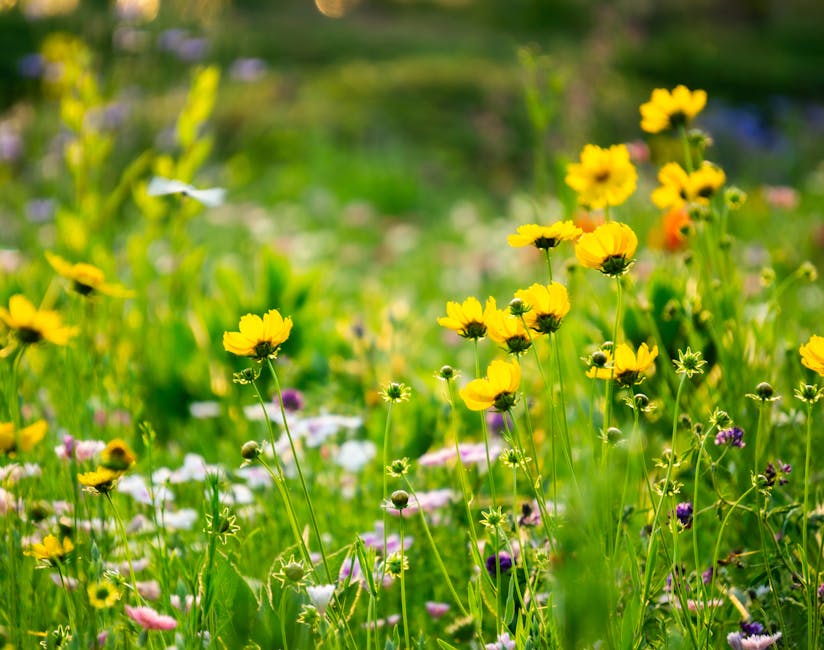The Ultimate Guide to Sustainable Gardening: Grow a Greener Future
The Ultimate Guide to Sustainable Gardening: Grow a Greener Future

What is Sustainable Gardening?
Sustainable gardening is more than just a trend; it's a responsible approach to cultivating plants that minimizes environmental impact while maximizing yields. It's about creating a healthy ecosystem in your garden that benefits both the plants and the planet. This guide explores key practices for building a thriving, eco-friendly garden, helping you grow a greener future, one plant at a time.
Key Principles of Sustainable Gardening
Several core principles underpin sustainable gardening practices. These include:
- Soil Health: Healthy soil is the foundation of any successful garden. Composting, using cover crops, and avoiding harmful chemicals are crucial for maintaining soil fertility and biodiversity. Compost significantly improves soil structure, increasing water retention and nutrient availability for your plants.
- Water Conservation: Efficient irrigation is key to sustainable gardening. Employing drip irrigation systems, mulching to retain moisture, and harvesting rainwater are effective water-saving techniques. Water conservation is crucial, especially in drier climates.
- Pest and Disease Management: Sustainable gardening prioritizes natural pest and disease control methods. This includes companion planting, introducing beneficial insects, and using organic pesticides only when absolutely necessary. Healthy plants are more resilient to pests and diseases.
- Biodiversity: A diverse garden ecosystem is more resilient and productive. Planting a variety of plants, including flowers, herbs, and vegetables, attracts pollinators and beneficial insects, contributing to a healthy and balanced garden.
- Waste Reduction: Composting kitchen scraps and yard waste reduces landfill waste and provides valuable nutrients for your soil. This minimizes your environmental footprint while creating a valuable resource for your garden.
Practical Steps for a Sustainable Garden
Choosing the Right Plants
Select plants appropriate for your climate and soil conditions. Native plants are generally more resilient and require less maintenance. Consider the sun exposure and water requirements of each plant when planning your garden layout. Careful plant selection contributes significantly to sustainable gardening success.
Composting: The Heart of Sustainable Gardening
Composting is essential for building healthy soil. Create a compost bin or pile and add kitchen scraps, yard waste, and other organic materials. Regularly turn the compost to speed up decomposition. The resulting compost is rich in nutrients and improves soil structure, making it ideal for sustainable gardening.
Water Wise Gardening Techniques
Efficient watering is crucial for conserving water. Consider installing a drip irrigation system for precise water delivery to plant roots. Mulching around plants helps retain moisture and reduces the need for frequent watering. Rainwater harvesting can provide a sustainable source of irrigation water.
Natural Pest Control
Instead of relying on harmful chemical pesticides, embrace natural pest control methods. Companion planting can deter pests, while introducing beneficial insects such as ladybugs can help control pest populations naturally. Organic pest control solutions are available as a last resort, but should be used sparingly.
Embrace Biodiversity
A diverse garden is a resilient garden. Plant a variety of vegetables, flowers, and herbs. This attracts pollinators like bees and butterflies, contributing to a healthy ecosystem and increasing your garden's overall productivity. A diverse range of plant life is key to successful sustainable gardening practices.
Conclusion: Grow a Greener Future
Sustainable gardening is a rewarding journey that benefits both your garden and the environment. By following these principles and practices, you can create a thriving, eco-friendly garden that contributes to a greener future. Start small, experiment with different techniques, and enjoy the process of growing your own food sustainably!

Comments
Post a Comment